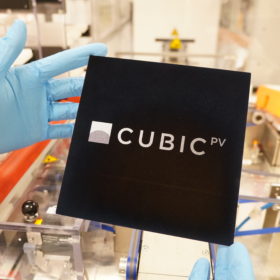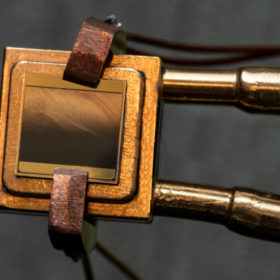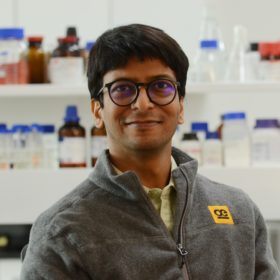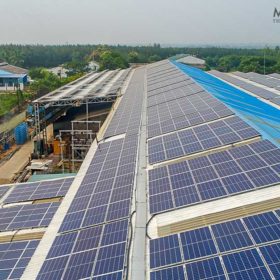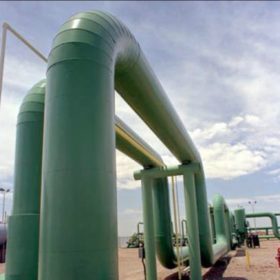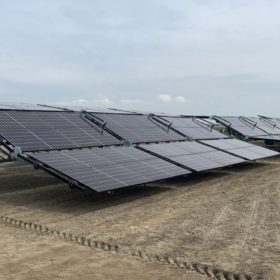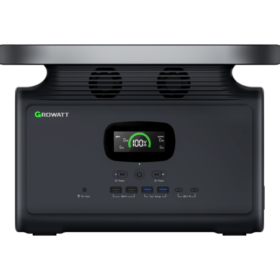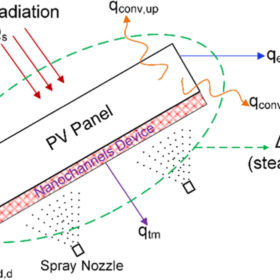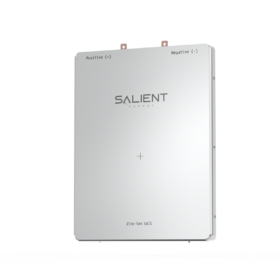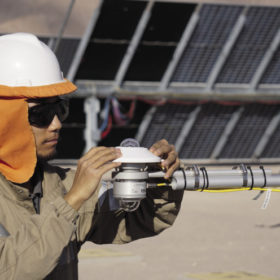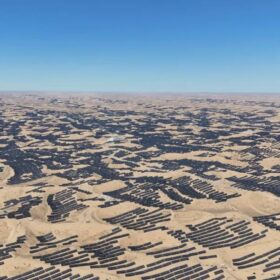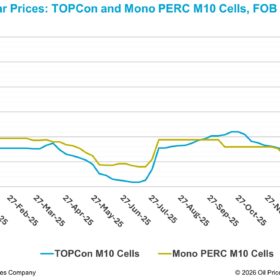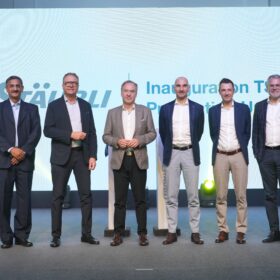CubicPV, Waaree sign five-year deal for annual solar cell supply of 1 GW
USA-headquartered CubicPV will supply, per annum, 1 GW of Direct Wafer silicon solar cells to Indian manufacturer Waaree Energies under a five-year contract. The cells will be supplied from its upcoming 2 GW factory in India.
MIT, NREL researchers develop 40%-efficient thermophotovoltaic cell for grid-scale thermal batteries
The device is described as a heat engine with no moving parts that is able to produce power from a heat source of between 1,900 to 2,400 C. This concept is known as thermal energy grid storage (TEGS) and consists of a low-cost, grid-scale storage technology that uses thermophotovoltaic cells to convert heat to electricity above 2,000 C.
Transforming the energy storage market
Ensuring pragmatic energy storage transformation is proportional to tweaking the current battery storage chemistry. Zinc battery technology is gaining traction, changing the prevailing energy storage dynamics.
Delhi discom deploys digital data platform for solar energy management
BSES Yamuna Power Limited has deployed a digital solution pilot project that predicts the energy demand at consumption points like electric vehicle charging stations and energy generation capacity at solar rooftops. This will help the utility plan to store excess energy by considering the distribution congestion and commercial aspects.
Norway’s Statkraft, Aker Horizons partner to explore green hydrogen and ammonia production in India
Norwegian renewable energy developer Statkraft has partnered Norway’s green investment company Aker Horizons to explore fully-integrated renewable power generation and green hydrogen production in India, targeting local steel and fertilizer industries.
Mobile agrivoltaic system from the Netherlands
Created by a Dutch group of companies and research institutions, the mobile solar system may also be combined with an electrolyzer for hydrogen generation. Two prototypes are currently being tested by a farmer and a research institute in the Netherlands.
Growatt unveils solar rechargeable portable power station
Chinese inverter maker Growatt has launched Infinity 1500, a portable power station for off-grid applications.
New solar module cooling tech based on porous nanochannels
US scientists have utilized a nanochannels device to cool down the operating temperature of a commercial PV module and have found that the proposed technique is able to improve power yield by up to 32.8%. Spray droplets are dispersed over the nanochannels device in order to eliminate the need for a continuous supply of a coolant.
Zinc-ion battery for residential applications
Developed by Canadian start-up Salient Energy, the zinc-ion battery has a rated capacity of 60 Ah, a nominal voltage of 1.3 V, and a volumetric energy density of 100 Wh/L. The device measures 26cmx24cmx1.2cm and weighs in at 1.3 kg
The long read: Defining the performance of bifacial solar modules
or some developers of ground-mounted PV, bifacial modules are already the default technology. The slight cost increase is often outweighed by an increase in energy yield. And yet “agreeing” on the right energy yield of a PV plant has always been the most heated debate between developers, investors, lenders, and technical advisers. Everoze partner Christophe Campistron looks at both sides.
